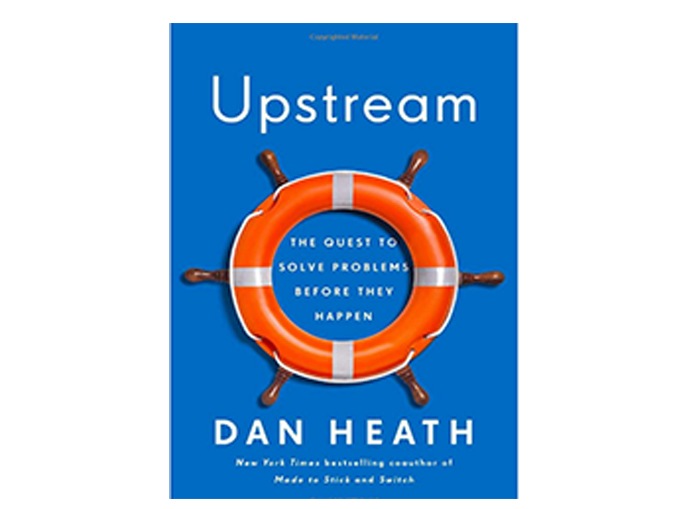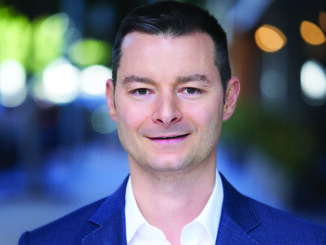Upstream: The Quest to Solve Problems Before They Happen by Dan Heath, Simon & Schuster, 2020
Upstream: The Quest to Solve Problems Before They Happen is a playbook for how one person can help solve complex social problems by looking upstream to identify and fix the forces that created the situation, thereby preventing the problem before it happens. Author Dan Heath is a senior fellow at Duke University’s Center for the Advancement of Social Entrepreneurship. With his brother Chip, Dan has written many renowned business books, such as Made to Stick, Decisive, and Switch.
Significant social problems often live on because we feel disempowered. We may not even notice the problem because our thinking is controlled by the culture in which we live. As Heath states, “The escape from problem blindness begins with the shock of awareness that you’ve come to treat the abnormal as normal.”
New language can be a catalyst to shock people out of “problem blindness.” The term sexual harassment was invented in 1975 by journalist Lin Forley while she was teaching a course at Cornell University on women and work. As Forley later wrote, “Working women immediately took up the phrase, which finally captured the sexual coercion they were experiencing daily.”
Downstream activities are optimized to treat the symptoms rather than the cause. They maintain the status quo and keep the powerful in power.
For example, in 2006, a study by obstetrics nurse Jacqueline Torres revealed that 84 percent of births in Brazil were delivered by C-section, even though most women wanted natural birth. As she looked deeper, she learned how Brazil’s overall health system was designed to produce C-section deliveries for the convenience of the doctors who wanted to do the deliveries on their schedules. Women felt disempowered to fight this and accepted C-section delivery to preserve their pride and avoid being humiliated by their male doctors during vaginal childbirth, as 25 percent of the women who delivered vaginally reported experiencing. Torres promoted a pilot program where doctors were forbidden to schedule C-sections before forty weeks, and the hospital changed its staffing so obstetrical medical staff would be available to deliver babies 24/7. Within a year and a half, the ratio of vaginal deliveries increased to almost 40 percent in the pilot hospitals. This program is being replicated throughout Brazil, Turkey, and Egypt, as well as other countries with unusually high rates of C-section deliveries.
Heath believes that upstream activists are systems thinkers, who take personal ownership of problems and are committed to finding ways to fix them. They find and organize like-minded people to study the forces at work to identify the leverage points where interventions will have the most impact.
One of the questions he asks is about how to avoid doing harm. Tinkering with complex systems involves risk. Sometimes the markers of success are misleading and produce unintended consequences. For example, in the 1960s when conservationists on Macquarie Island in the South Pacific finally got rid of the rabbits to preserve migratory birds, the island became overrun with the invasive weeds the rabbits had been eating. Heath recommends using an incremental approach when trying to change complex systems.
“Systems can’t be controlled, but they can be designed and redesigned,” he wrote.
Before acting, you need to observe the situation from a vantage point where you gain a command of the entire ecosystem and create feedback loops that create a continuous stream of reliable data to measure success and make adjustments.
The theme of this book is that with foresight, focus, and courage, we can prevent problems before they happen. Even if you can’t completely solve problems, upstream activism reduces their impact. Heath asks, “What problems do you face in your life that you see as inevitable?” If you have a recurring problem in your world, he advises, go upstream. Be patient. Change requires action but outcomes take time, often up to ten years. Macro effects starts with micro actions. You need to see a problem up close to understand it.
“Upstream efforts are quiet but powerful with effects that ripple across time.” They give you the chance to leave the world a little better than you found it.





Be the first to comment